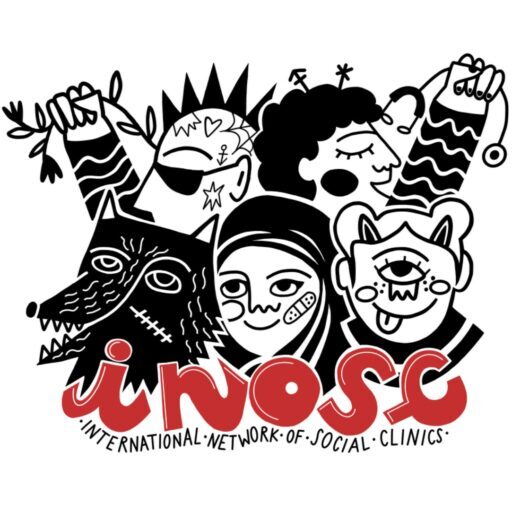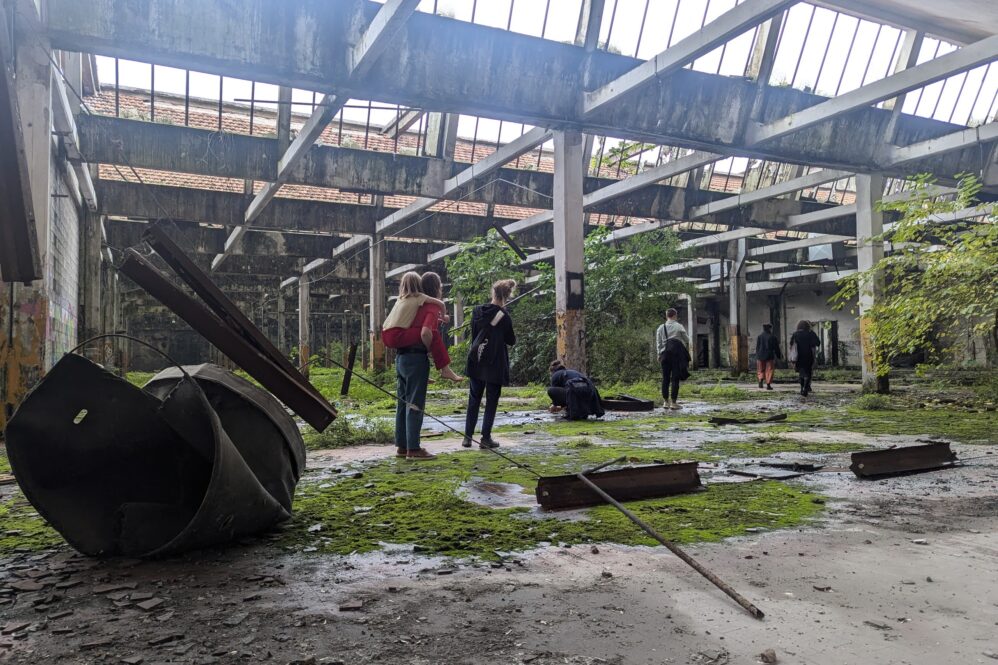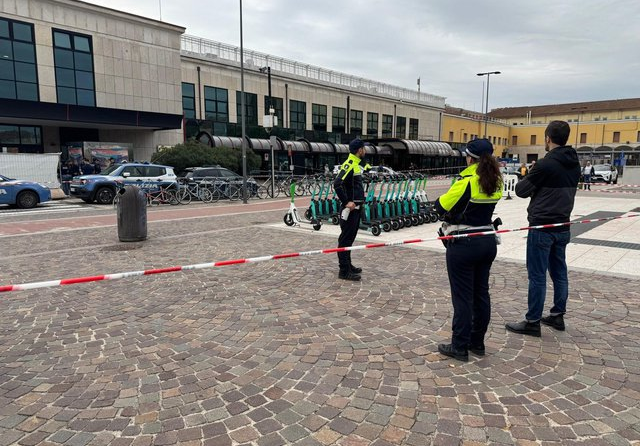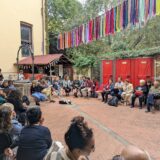Overview and Context
 This working group began with a fundamental question: What kinds of individuals are coming to our social clinics, and what are their needs? Participants discussed the demographics of those who access social clinic services, highlighting that incomers often include migrants, individuals with mental health needs, and marginalized groups such as the homeless, people with substance dependencies, and those facing systematic discrimination.
This working group began with a fundamental question: What kinds of individuals are coming to our social clinics, and what are their needs? Participants discussed the demographics of those who access social clinic services, highlighting that incomers often include migrants, individuals with mental health needs, and marginalized groups such as the homeless, people with substance dependencies, and those facing systematic discrimination.
Each clinic has a unique makeup of incomers depending on local context and needs. For example, one clinic described serving a highly diverse group, including migrants, transgender individuals, and people dealing with mental health issues. Another participant added that the clinic supports those facing physical health needs, often migrants who encounter access barriers or discrimination. Incomers also include those referred by other organizations, such as people seeking abortion services who face bureaucratic obstacles related to gender identity.
The participants raised a critical issue: the language and terminology clinics use to describe their incomers. The group agreed that instead of viewing people as “targets” or “demographics,” social clinics should think of them as “users” or “patients,” respecting their individual identities beyond their social categories.
Discussion
Social clinics serve as vital points of access and support for individuals who are marginalized and often neglected by state-run systems. One participant emphasized that their clinic offers frontline support to undocumented migrants and homeless nationals, providing psychological and primary healthcare. Clinics often partner with street organizations to provide basic needs such as food and hygiene supplies. Similarly, another participant noted that many social clinics assist people without social security or medical insurance, including migrant and Roma populations who are under constant pressure from state policies. This assistance is often essential, particularly in places where government support is minimal or absent.
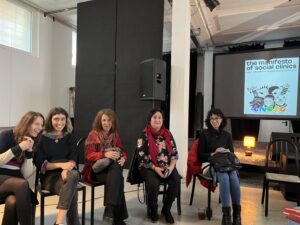 The role of social clinics extends beyond providing medical care; they address the intersectional issues faced by their incomers, which include systemic exclusion, lack of social security, and inadequate healthcare access. In Germany, social clinics aim to serve everyone equally without segregating by background or social identity, countering trends where services are often divided by factors like housing status or migrant background. The overarching goal is to establish clinics in the most underserved areas, reaching communities that are often ignored or marginalized.
The role of social clinics extends beyond providing medical care; they address the intersectional issues faced by their incomers, which include systemic exclusion, lack of social security, and inadequate healthcare access. In Germany, social clinics aim to serve everyone equally without segregating by background or social identity, countering trends where services are often divided by factors like housing status or migrant background. The overarching goal is to establish clinics in the most underserved areas, reaching communities that are often ignored or marginalized.
Participants also discussed the broader political landscape and the growing restrictions on migration across Europe, particularly in Greece, Italy, and Germany. Some highlighted the worsening policies in Greece, which increasingly mirror a form of “necropolitics,” systematically disregarding migrant welfare and forcing them into camps far from urban centers, with little
support from NGOs. In response, social clinics in Greece have had to step in to provide basic resources like clothing, food, and shelter. Representatives from Germany noted the left-wing movement’s struggle to provide a unified response to restrictive migration policies, stressing the need for solidarity and shared strategies among European clinics.
The group debated approaches to state collaboration. Some participants questioned whether social clinics should engage with institutions, given the risk of diluting their mission or reinforcing state neglect of marginalized populations. Others suggested that the existence of these clinics is itself a powerful response to hostile migration policies, showing a direct, grassroots commitment to social and health justice. A contrasting perspective argued for pragmatic cooperation with institutions, pointing out that engagement can sometimes secure immediate improvements for those in need, even if it risks reducing institutional accountability.
In response, another group noted that clinics often operate in conflict with local policies, which can sometimes be beneficial. Their stance is to maintain distance from institutions, which they view as complicit in perpetuating inequality. For many, the goal is to empower society itself to address these issues, rather than relying on institutional solutions. The debate reflected an ongoing tension between the desire to uphold ideological purity and the need to pragmatically address immediate needs, leaving room for further dialogue and strategy development.
Proposals and Future Directions
● Develop a unified approach to migration policies and marginalization across clinics to ensure a coherent and impactful response.
● Expand the advocacy role of social clinics by holding state institutions accountable for failing to meet healthcare obligations as outlined in national constitutions.
● Organize coordinated public demonstrations or campaigns challenging restrictive migration policies, using social clinics as examples of solidarity in action.
● Revisit the question of collaboration with institutions, using a contextual and adaptive approach to secure immediate resources or policy shifts that benefit marginalized groups in the short term.
● Retain the autonomy of clinics to ensure their mission remains centered on the needs of society’s most vulnerable members, independent of institutional influence.
 In conclusion, the “Migration” working group reaffirmed the value of social clinics as community-driven, inclusive spaces that respond to the systemic challenges faced by migrants and marginalized individuals. The group’s discussions revealed both the potential and the challenges of engaging with state systems, underscoring the need for continued solidarity and strategic action in the face of increasingly hostile migration policies across Europe.
In conclusion, the “Migration” working group reaffirmed the value of social clinics as community-driven, inclusive spaces that respond to the systemic challenges faced by migrants and marginalized individuals. The group’s discussions revealed both the potential and the challenges of engaging with state systems, underscoring the need for continued solidarity and strategic action in the face of increasingly hostile migration policies across Europe.
